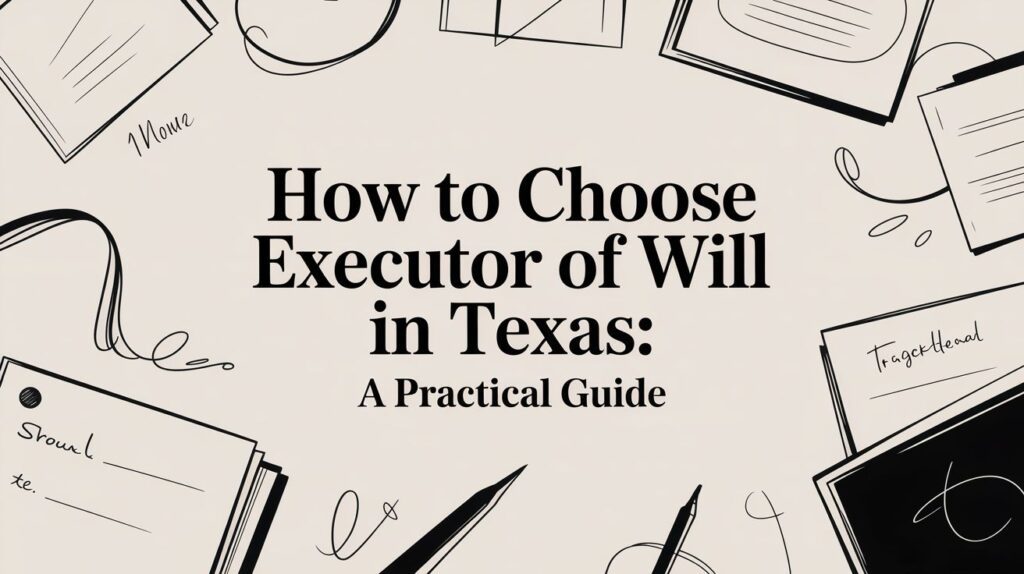Deciding whether you need a trust can feel overwhelming, but securing your family's future is a manageable process with the right guidance. A trust is a powerful estate planning tool for many Texans, but it isn't a one-size-fits-all solution. This guide is designed to provide the clarity you need to make an informed decision for your loved ones.
When to Consider a Trust for Your Texas Estate
Planning for the future involves making smart decisions today. A common question our clients ask is whether a simple will is sufficient or if they need a trust. The answer always depends on your specific financial situation, family dynamics, and long-term goals.
While wills and trusts are both cornerstones of a solid estate plan, they serve different purposes. A will is a legal document that outlines who receives your assets and who will care for minor children after your death. Crucially, a will must go through a public court process called probate. A trust, however, is a private legal arrangement that manages your assets during your lifetime and after you pass away, almost always avoiding the probate process entirely.

Trust vs. Will At a Glance: When Is Each Best?
Understanding the core differences is the first step. For a deeper dive, review the key factors to consider when choosing between a will and a trust. In the meantime, this table offers a quick snapshot to help you see where you might fit.
| Scenario | A Trust May Be Better If… | A Simple Will May Suffice If… |
|---|---|---|
| Asset Privacy | You want to keep your financial affairs private and out of public court records. | You are comfortable with your estate details becoming a public record during probate. |
| Probate Avoidance | Your main goal is to help your family avoid the time, hassle, and expense of probate court. | Your estate is relatively simple, and you are not concerned about the probate process. |
| Complex Family | You have a blended family, minor children, or want to distribute assets on a specific timeline. | You have a straightforward family structure and simple distribution wishes. |
| Incapacity Plan | You need someone to manage your finances if you become unable to do so yourself. | You have a separate durable power of attorney for incapacity planning. |
| Asset Protection | You want to protect assets for beneficiaries from creditors, divorce, or irresponsible spending. | Your beneficiaries are financially responsible and creditor risks are low. |
This table is a great starting point, but every situation is unique. Think of it as a guidepost, not a final answer.
A trust acts like a private set of instructions for your assets, managed by a person you choose (the trustee) for the benefit of your loved ones (the beneficiaries). This structure offers a level of control and privacy that a public will simply cannot provide.
To get a more personalized idea of your own needs, it can be helpful to walk through a guided questionnaire. This one asks, "Is a trust right for me?" and can help you organize your thoughts. Making this decision is a major step toward protecting everything you’ve worked so hard to build.
Understanding How a Trust Works in Simple Terms
So, what exactly is a trust? At its heart, a trust is a private agreement you create to hold and manage your assets for the people you care about. It is a fundamental tool for effective estate planning and asset protection.
Think of it like setting up a secure financial “safebox.” You place your valuable assets inside and then write a detailed rulebook for how everything should be handled. You appoint a trusted person—the "keyholder" or trustee—who must follow your rules to the letter. This setup gives you an incredible amount of control over your legacy, ensuring your wishes are carried out long after you're gone.

The Key Roles in a Texas Trust
To understand how a trust operates, you need to know the main players involved. Under the Texas Trust Code, every trust has three essential roles.
- The Grantor (or Settlor): This is you. You’re the one who creates the trust, transfers assets into it (like your house, bank accounts, or investments), and writes the rules for how it all gets managed.
- The Trustee: This is the person or institution you pick to manage the assets. A trustee has a fiduciary duty, which is the highest standard of care under Texas law. That means they are legally bound to act only in the best interests of the beneficiaries. These fiduciary principles are central to how trusts function in Texas.
- The Beneficiary: This is the person, group of people, or even a charity that will ultimately benefit from the assets in the trust. You can name as many beneficiaries as you want and get very specific about how and when they receive their inheritance.
For example, a Texas parent (the Grantor) creates a trust and names their financially savvy sibling as the Trustee. The beneficiaries are their young children. The trust's rules might state that the money is for the children's education and cannot be distributed in a lump sum until they each turn 25. This is a practical, real-world scenario showing how a trust provides responsible management for loved ones. For a deeper look, here’s a good primer on what is a trust fund and how it works.
Revocable vs. Irrevocable Trusts: Which Is Right for You?
In Texas, trusts generally fall into two categories: revocable and irrevocable. The difference comes down to one critical question: Can you change your mind? Understanding this distinction is the first step in selecting the right tool for your estate plan.
A Revocable Living Trust is defined by its flexibility. As the grantor, you retain complete control. You can change the terms, add or remove assets, change beneficiaries, or even dissolve the trust entirely. People primarily use this type of trust to avoid the probate process.
An Irrevocable Trust, on the other hand, is designed to be permanent. Once you transfer assets into it, you generally cannot take them back or change the rules. While this sounds rigid, this inflexibility provides powerful advantages.
An irrevocable trust legally separates the assets from your personal estate. This move can shield your assets from future creditors or lawsuits and might even help lower your overall estate tax bill.
So, which one is for you? The choice depends entirely on your goals. Are you looking for flexibility and a way to avoid probate? Or do you need robust asset protection and more advanced tax planning? An experienced Texas estate planning attorney can provide practical advice, walking you through the pros and cons to determine which structure best serves you and your family.
The Real-World Benefits of a Texas Trust
Knowing what a trust is and how it works is one thing, but the real question is: Why would I even need one? The answer lies in the tangible, real-world advantages a trust offers you and the people you care about most. A trust is not just a legal document; it is a strategic tool designed to deliver privacy, control, and protection when your family needs it most.
When you create a trust, you're essentially building a private framework for your estate. This ensures your final wishes are carried out efficiently and discreetly, away from the public proceedings of a courtroom.
Sidestep the Public Probate Process
One of the most significant reasons people choose a trust is to avoid probate. In Texas, when an estate is settled with only a will, it must go through a court-supervised process called probate, as defined by the Texas Estates Code. This process is a matter of public record, which means anyone—a curious neighbor, a distant relative, or a potential scammer—can look up the details of your assets, their value, and who inherited them.
Probate can also become a long, expensive, and stressful process for your family. It often involves court fees, attorney costs, and extensive administrative paperwork that can tie up assets for months or even years. These delays can create serious financial strain and emotional stress for your beneficiaries during an already difficult time.
A properly funded trust allows your chosen successor trustee to manage and distribute your assets according to your instructions—all done privately and without court involvement. This seamless transition is often the most compelling reason families start asking, "Do I need a trust?" To learn more, check out our guide on how to avoid probate in Texas.
Provide for Minors and Young Adults
If you have children or young adult beneficiaries, a trust is an invaluable tool for protecting their inheritance. A will can name a guardian, but it has no power to control how and when a child receives their assets once they legally become an adult at age 18. Handing a large sum of money to an 18-year-old is rarely a sound financial decision.
A trust gives you precise control over their financial future long after you're gone. Our step-by-step guidance for trust administration can help you structure this effectively:
- Staggered Distributions: You can set up the trust so your child receives funds at specific ages—say, one-third at 25, another third at 30, and the rest at 35. This prevents a young person from receiving a large inheritance before they have the maturity to manage it wisely.
- Incentive-Based Payouts: You can tie distributions to life milestones, like graduating from college, starting a business, or making a down payment on a home.
- Lifetime Support: You can direct the trustee to use trust funds for essential expenses like education, healthcare, and general living costs throughout the beneficiary's life.
A trust acts as a responsible financial guardian for your children, ensuring the assets you leave behind are used to support their growth and well-being, not squandered. This level of customized planning is simply not possible with a will alone.
Protect Beneficiaries with Special Needs
For families caring for a loved one with a disability, a trust isn't just a helpful tool—it's often a necessity. A direct inheritance can immediately disqualify a person with special needs from receiving critical government benefits like Supplemental Security Income (SSI) and Medicaid, which have very strict asset and income limits.
A Special Needs Trust is specifically designed to hold assets for the benefit of a person with a disability without jeopardizing their eligibility for these essential programs. The trustee can use the funds to pay for supplemental needs that government benefits don't cover, such as:
- Specialized medical equipment
- Therapy and rehabilitation services
- Education and training programs
- Transportation and travel
- Personal care attendants
This structure ensures your loved one’s quality of life is enhanced without disrupting the vital support systems they depend on. A knowledgeable Texas trust administration lawyer can help you structure this complex instrument to comply with all state and federal rules, giving you profound peace of mind. This often ties into broader discussions about guardianship.
When a Trust Becomes a Necessity
Many people can benefit from a trust, but for some Texas families, it is an absolute necessity. Certain life events or financial situations create complexities that a simple will is not equipped to handle. If you see your own family in the scenarios below, a trust may be essential for protecting your assets and your loved ones.
These situations demand a level of control, privacy, and legal protection that the public probate process cannot provide.
Protecting Assets in a Blended Family
Blended families are more common than ever, and they bring unique estate planning challenges. If you have children from a previous marriage, a simple will could accidentally disinherit them.
For instance, if you leave everything to your current spouse, there is no legal guarantee they will pass those assets on to your children. They could remarry, have more children, or change their own will, leaving your children with nothing. A trust is the single best tool to prevent this. You can create a structure (often a Marital Trust or QTIP trust) that provides for your current spouse for the rest of their life, while legally ensuring that the remaining assets must go to your children. It removes ambiguity and ensures your wishes are followed.
The decision tree below highlights a few key scenarios—the need for privacy, serious asset protection, or caring for loved ones with unique needs—where a trust offers critical advantages.
This visual guide makes it clear: the more complex your goals, the more a trust becomes the only tool for the job.
Managing Property in Multiple States
If you own real estate outside of Texas, such as a vacation home or rental property, your family could face a significant legal challenge without a trust.
When you pass away, your will must go through probate in Texas. However, it must also go through a second probate process in every other state where you own property. This is called ancillary probate, and it can be a nightmare. It multiplies the cost, time, and complexity for your heirs.
By placing all your properties into a single revocable living trust, you avoid this entire process. Because the trust owns the properties—not you personally—there is no need for probate in any state. Your successor trustee can manage or distribute everything from one central point, saving your family considerable stress and expense.
Preparing for Potential Estate Taxes and Preserving Wealth
For families with significant wealth, a trust is a critical tool for preserving what you have built. An irrevocable trust can be structured to legally remove assets from your taxable estate. This advanced tax planning strategy can significantly reduce or even eliminate federal estate taxes for your heirs, preserving more of your hard-earned legacy for future generations.
This is an area where the guidance of a skilled Texas estate planning attorney who understands the nuances of tax law is indispensable.
Providing for a Beneficiary with a Disability
As mentioned before, this situation is so critical it warrants its own highlight. If you plan to leave assets to a loved one with a disability, a trust is non-negotiable.
A direct inheritance could be devastating, instantly disqualifying them from vital government benefits like Medicaid and Supplemental Security Income (SSI), which have strict income and asset limits.
A Special Needs Trust is custom-built for this purpose. It holds and manages funds for the benefit of your loved one without counting as their personal asset. The trustee can then use the funds to pay for things that enhance their quality of life—therapy, education, recreation, and more. This ensures they are cared for exactly as you intended, without disrupting their essential support system.
Clearing Up Common Myths About Trusts
When people ask, "Do I really need a trust?" their hesitation often stems from persistent myths. These misconceptions can prevent Texas families from using one of the best tools available for protecting their legacy. Let's replace fiction with facts grounded in the Texas Trust Code.
One of the most common myths is that trusts are only for the ultra-wealthy. This couldn't be further from the truth. While trusts are essential for managing large, complex estates, they offer incredible benefits for families with more modest assets, too. The primary advantage for many is avoiding the public, expensive, and often lengthy probate process.
Myth 1: You Will Lose Control of Your Assets
A common fear is that creating a trust means signing away control of your money and property. With the most common type of trust used in estate planning—the revocable living trust—this is completely false.
With a revocable trust, you typically serve as the grantor, trustee, and beneficiary for your entire lifetime.
- You maintain 100% control: You can buy, sell, or mortgage assets inside the trust just as you always have. Nothing changes in your day-to-day life.
- You can change it anytime: You can amend the trust, add or remove beneficiaries, or even dissolve it if your circumstances change.
Think of it as a detailed instruction manual you write for your assets that only activates if you become incapacitated or pass away. Until then, you remain in full control. A skilled Texas estate planning attorney can structure your trust to provide the ultimate combination of control and flexibility.
Myth 2: A Simple Will Can Prevent All Family Disputes
Many believe a will is the ultimate peacemaker. While a will is a critical part of any estate plan, it does not automatically prevent disputes. In fact, because it must go through the public probate process, it can sometimes invite them.
Once filed, a will becomes a public court document, opening the door for disgruntled heirs or creditors to challenge it. A trust, by contrast, is a private agreement. Its terms remain confidential, and administration occurs outside of a courtroom, which dramatically reduces the opportunity for conflict and dispute resolution issues.
A trust allows you to set clear, private instructions for how your assets are handled, which can be a powerful way to minimize family friction. By keeping your affairs out of the public eye, you protect both your legacy and your loved ones' privacy.
Myth 3: The Upfront Cost Isn't Worth It
Setting up a trust does cost more upfront than drafting a simple will. However, viewing this as merely an expense is shortsighted. The initial cost is an investment in your family's future—an investment in their financial well-being and peace of mind.
The costs associated with probate—court fees, executor compensation, and attorney's fees—can add up quickly. In many cases, these costs far exceed what it would have cost to create a trust. By avoiding probate, a trust can save your estate a significant amount of money and save your family from months or even years of legal headaches. It's a key part of any effective asset protection strategy.
Your Next Steps in the Estate Planning Process
Deciding that a trust may be the right move for your family is a significant step. If the benefits of privacy, control, and probate avoidance align with your goals, it's time to take action. The goal is to partner with a professional who can translate your wishes into a solid legal plan.
A little preparation can make your first meeting with an attorney incredibly efficient and productive.
Preparing for Your Initial Consultation
Walking into your first meeting with a Texas estate planning attorney prepared will save time and help your legal team understand your situation quickly. Before your appointment, spend some time gathering key information.
This preparation allows your lawyer to provide specific, meaningful advice from the very beginning.
Key Documents and Information to Gather:
- An Inventory of Your Assets: Create a general list of your major assets, including real estate, bank accounts, retirement funds (401(k), IRA), investments, life insurance policies, and business interests. Ballpark figures are sufficient.
- A List of Key People: Write down the full names and contact information for everyone you plan to include, such as your potential trustees, successor trustees, and all beneficiaries.
- Existing Estate Planning Documents: If you have an old will, power of attorney, or healthcare directive, bring a copy.
Partnering with a Texas Trust Attorney
Online templates and DIY services cannot replace the tailored guidance of a qualified Texas attorney. The Texas Trust Code has specific rules and requirements, and a small mistake in drafting a document can have massive consequences, potentially invalidating the trust or causing the family conflict you sought to prevent.
An experienced lawyer is your strategist. They help you navigate complex family dynamics and ensure your trust is properly funded—a critical step that is often overlooked. They provide practical advice for trustees, executors, beneficiaries, and families.
If you’re managing a trust or planning your estate, contact The Law Office of Bryan Fagan, PLLC for a free consultation. Our attorneys provide trusted, Texas-based guidance for every step of the process.
Got Questions About Texas Trusts? We've Got Answers.
When you start digging into estate planning, it's natural for questions to arise. This section provides clear, direct answers to the most common questions we hear from Texas families to help you feel more confident about your next steps.
What’s the Real Difference Between a Revocable and an Irrevocable Trust?
It really all boils down to one word: flexibility.
A revocable trust, often called a living trust, is designed to be changed. As the grantor, you can amend it, add to it, or even dissolve it entirely whenever you wish. Its primary benefit is helping your estate avoid the public and often lengthy probate process, ensuring your assets are transferred to your loved ones privately and efficiently.
On the other hand, an irrevocable trust is generally permanent once created. This rigidity is its greatest strength. It is a powerful tool for asset protection because it legally moves assets out of your personal estate. This can shield them from creditors and potentially lower your estate tax liability.
Think of it like this: A revocable trust is your detailed blueprint for life—you can erase and redraw as things change. An irrevocable trust is more like pouring a permanent foundation, built to protect your legacy for the long haul.
How Much Does It Really Cost to Set Up a Trust in Texas?
There is no single price tag for a trust in Texas; the cost depends on the complexity of your finances and your goals. While setting one up is more of an upfront investment than drafting a simple will, it often saves your family significant money and stress later on.
By avoiding court fees, potential family disputes, and administrative costs associated with probate, a trust can be an incredibly smart financial decision. It is best to view it not as an expense, but as an investment in your family's security and peace of mind. A free consultation with a Texas estate planning attorney is the best way to get a clear estimate for your unique situation.
Will a Trust Actually Protect My Assets from a Lawsuit?
That’s an excellent question, and the answer depends on the type of trust you have.
- Revocable Living Trust: Not really. Because you retain full control over the assets and can take them back at any time, the law still considers them yours. Therefore, a revocable trust generally offers no protection from lawsuits or creditors.
- Irrevocable Trust: This is where you find protection. A properly structured irrevocable trust can be a fortress for your assets. Since you legally give up ownership and control, those assets are typically out of reach of your personal creditors. A skilled Texas trust administration lawyer can help you determine if this strategy is right for you.
If I Have a Trust, Do I Even Need a Will Anymore?
Yes, you absolutely do. We always recommend creating a special type of will called a "pour-over will" to act as a safety net for your estate plan.
Its job is simple but vital: it "catches" any assets you may have forgotten to put into your trust or acquired just before you pass away. The will then directs—or "pours over"—those assets into your trust. Without one, those assets would be left out of your plan and forced into the public probate process, which is exactly what you were trying to avoid.
If you’re managing a trust or planning your estate, contact The Law Office of Bryan Fagan, PLLC for a free consultation. Our attorneys provide trusted, Texas-based guidance for every step of the process.







